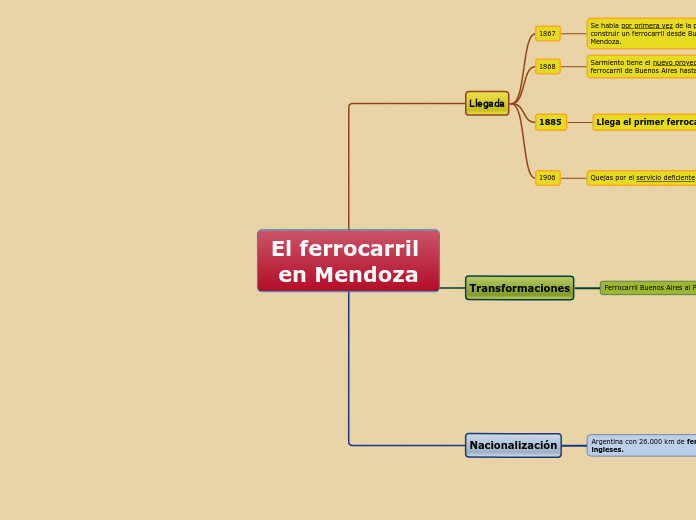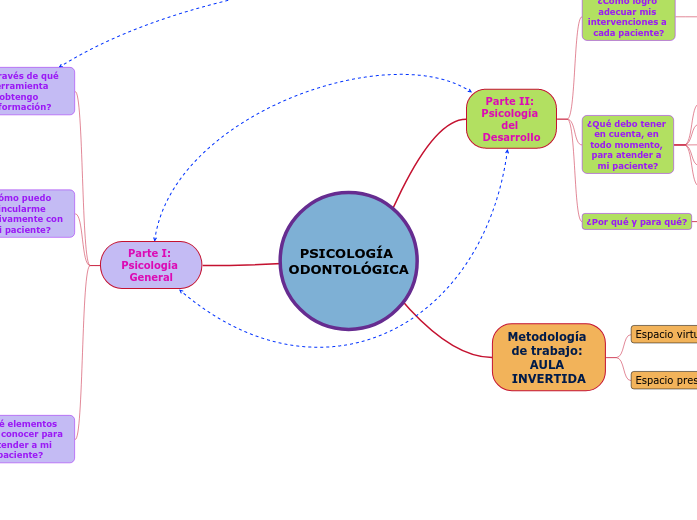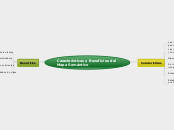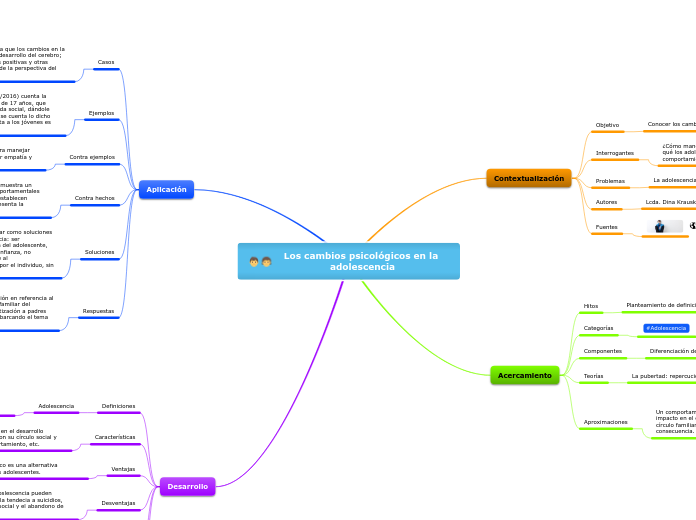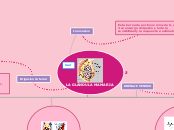El ferrocarril en Mendoza
To name your story, you have to think about the overall message and what you want your audience to understand from the story. Also, make it relevant and easy to remember.
Nacionalización
The ending of a story is essential. We all know that if the ending is weak, what happened before loses its importance. So make it unpredictable, but fair. A resolved ending answers all the questions and ties up any loose threads from the plot.
Argentina con 26.000 km de ferrocarriles ingleses.
This is the moment when the main character surpasses the last obstacle and finally faces their greatest challenge.
The climax usually follows one of these patterns:
- realization
- resolution
- choice
Type in your answer.
Gobierno nacionaliza estos ferrocarriles (los compra).
Desde el '40 hasta Menem vamos a tener una red ferroviaria controlada por el estado.
1993
Muy pocos trenes andando
Los productos y el ganado fueron trasladados a los camiones.
1958
Se reemplazan las locomotoras a vapor por las eléctricas.
1949
El Pacífico es rebautizado como Ferrocarril Nacional Gral. San Martín.
1947
This is the closure section of the story.
See examples of possible outcomes below:
- all problems have been solved
- it's clear how each one of your characters ends up
- your main character is transformed by the challenge
Vencía la concesión otorgada a las empresas ferroviarias
Try answering these questions to come up with a closure:
- Have all the problems been solved?
- Is there a clear picture of what happens with each character in the story?
- Has the challenge transformed your main character?
- How do the characters feel in the end?
Estado resulve nacionalizarlos
1930
Un rápido desarrollo camionero
Transformaciones
The middle of the story is where you add layers of complications that will lead to the end. Reveal more about the character's journey. Did their personality go through changes? How did they overcome the challenges? And as you build up the story’s central conflict, make it more personal to that character. Also, from the middle act, you have to lead into the final act.
Ferrocarril Buenos Aires al Pacífico
Type in any other challenges which other characters in the story need to face.
Fue pionero de la promoción turística
con la construcción de hoteles
1938: Hotel el Sosneado
1935: Hotel Uspallata
1903: Hotel Puente del Inca
Favoreció el desarrollo de la industria vitivinícola.
con:
La construcción de grandes depósitos.
La incorporación de vagones toneles.
La instalación de desvíos a las bodegas.
1925
Se instalan un vivero en la estación ramacaída
Para producir variedades de plantas frutales importadas de Francia.
1917
Se funda la revista B.A.P.
In most stories, there are 3 challenges. The number 3 is a mystical number symbolizing completeness. Try to come up with interesting challenges with which your character needs to struggle.
See a few examples below:
- turns into a werewolf at night
- is sent back in time
Para que los productores rurales tengan una guía para cultivar y hacer producir mejor sus tierras.
Llegada
In the beginning of the story (or the exposition), you will need to introduce the setting and characters. You might also want to introduce the main conflict. This part of the story is important because it gives the reader necessary background information and maybe even a first insight into a character’s personality.
1906
Quejas por el servicio deficiente
Llegaron nuevas vías que soportaban mayor tonelaje de los ternes.
1885
Llega el primer ferrocarril a Mendoza
Dos ferrocarriles:
Buenos Aires al Pacífico
Construido por ingleses
Subtopic
Trasandino
Construido por la nación
Hizo que Mendoza se conectara con el litoral rioplatense, donde el viaje se reducía a dos días.
1868
The setting (time & place) of a story can change throughout the plot.
Sarmiento tiene el nuevo proyecto de construir un ferrocarril de Buenos Aires hasta Chile.
Your story can take place wherever your imagination will take you to.
For example: in an elevator, in an enchanted forest, etc. Don't forget to give details of the environment each time the setting changes, otherwise, the story can be confusing. Also, mention the seasons as each of them has unique weather and events.
1867
Characters are essential to a good story. Usually, the protagonist(s) is/are the most affected by the plot. Introduce a character by focusing on their actions, interests, and occupation, as the physical appearance doesn't make a difference in most cases.
Se habla por primera vez de la posibilidad de construir un ferrocarril desde Buenos Aires hasta Mendoza.
Type in the name of your character.
